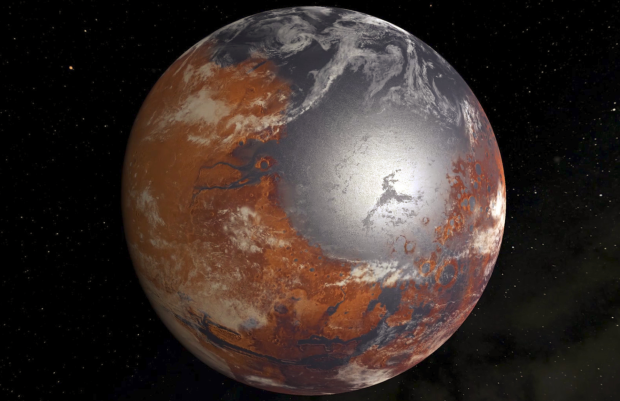Seismic data taken by NASA’s InSight landerwhich has since been decommissioned, discovered the presence of large reservoirs of liquid water beneath the surface of Mars.

VIEW GALLERY – 2 PICTURES
Researchers have known for some time that Mars once hosted large amounts of liquid water, which formed river-like delta systems in various regions of the planet. Evidence of liquid water is crucial to the search for ancient microbial life on the Red Planet, as it is a prerequisite for life as humans know it. But what if there is still life on Mars, but humans simply cannot reach it because it lies miles beneath the Red Planet’s surface?
Data from NASA’s InSight landerwhich used a seismometer and other instruments to measure Mars’ geological activity, indicate the presence of vast underground reservoirs of liquid water. These measurements have shown researchers that the reservoir is so large that if it were emptied, it would cover the entire planet with about a mile of ocean. Unfortunately, humans will not have access to this reservoir for some time, as it lies between 7 and 13 miles beneath the planet’s surface in the mid-crust region.
“Understanding the Martian water cycle is critical to understanding how the climate, surface and interior evolve. A useful starting point is identifying where and how much water is present.“, said researcher Vashan Wright of the University of California San Diego
“Finding that there is a large reservoir of liquid water gives insight into the climate that was or could be there. And water is necessary for life as we know it. I see no reason why (the underground reservoir) shouldn’t be a habitable environment. It certainly is on Earth – deep, deep mines host life, the sea floor hosts life. We haven’t found evidence of life on Mars, but at least we’ve identified a place that could, in principle, support life.“, said Michael Manga of the University of California Berkeley

